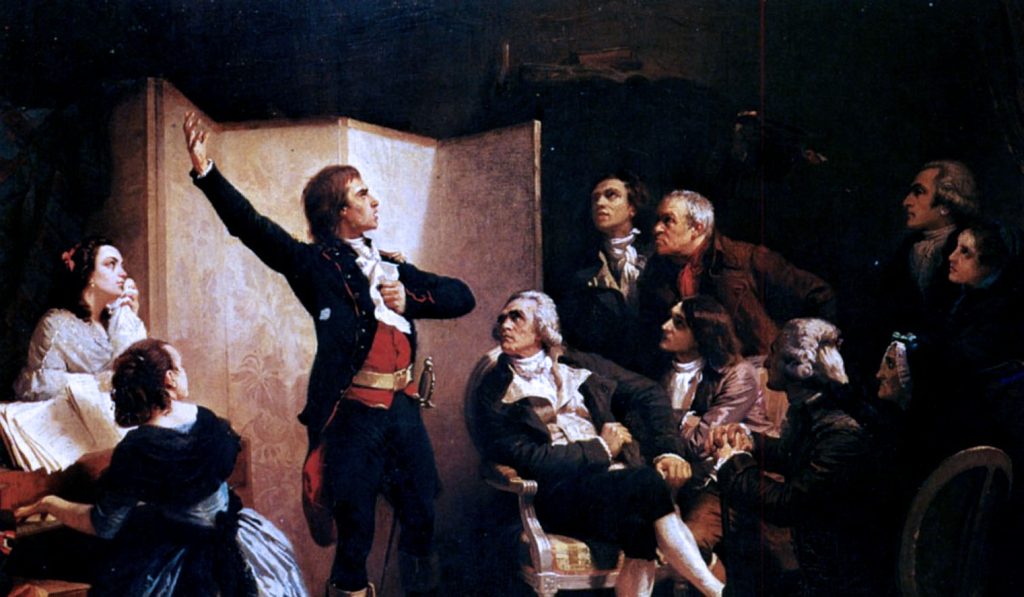Christine Hume
Two Fictions
- Target
- Cruise Ship

Target
My grandfather’s house is frigid. Keeps us mentally alert, he says. We will be patriots of the cold: fatigue-resistant and vigilant with a backwoods edge. I lose track of where I am: huddled in loose blankets with homework at a wood-burning stove. I read about history and silkworms who after molting, develop a redness around the throat, heralding the onset of metamorphosis. Cold is a current of thought where nothing seems to circulate. I pour over books spread out on the floor. There’s nothing else in the dining room but a table and chairs, a hutch, and an etching of a rabbit in the snow with a stain of blood nearby. A shot blooms in the back of my toy mind. I imagine ducks taking off in bullet showers. One red dot dispersing. Red begins the process of losing place: disorientation and lighting fires along the way. I answer questions about the robust Georges-Jacque Danton during France’s “Reign of Terror.” In the textbook, he is gigantic and jowly enough to be my grandfather. I am clinging to the stove’s heat. I can’t get myself warm, except where I’m burning hot. How many times have I had to lock myself in the bathroom to keep him away from me? The stove is cast iron, on legs, with a window like a face to watch the fire. Its glow grows bare. Stay alert. A dog barks in the backyard. Stoke the sleepy fire. See the eyes dart. Seek out a face in the book, black and white eyes to put a question to. Many plots move through me as I write about a guillotined French revolutionary. I am lying to myself. I only once made it to the bathroom. A cloth red bookmark ripped out of the book will do. I tie it around my neck: a hummingbird’s throat. My heart beats faster. To be alert. To be a decapitated body.
Cruise Ship
When Netscape took over the landscape, we had to remind ourselves about the cure for seasickness. Look up and out as your screen turns into old-fashioned glass, invaded by white clouds and rainbow panoramas. When the mesmeric smears of open sea and wind get squeezed into the palm of your hand, the ship divides the sea. And everyone stops believing in the sublime. At the beginning of the information age, J.M.W. Turner schematized his subject and traded literacy—signs that you can read—for signals. A flag, a rocket flare, a hand flailing at the rough surface. It’s possible not to see a ship at all. If you think you can make out anything, it’s because there’s a ratio between signal and noise. You don’t hear, but feel the big engines throbbing through your feet, up through your bones.
The sound of surf and seagulls erupts as the camera pans over the ocean.
“Is the sun following us?” asks the girl on the deck .
“No, we are the ones who are moving,” answers her mother.
“I am being a statue now,” says the girl, then holds her breath.
“You forget that the light is still rolling,” says the mother.
In the film, an unhurried rhythm inspires strangers to spill their most colorful secrets, to imagine their lives as life-like illusions producing nausea. Vacationers measure leisure against buoyancy. Remember what it feels like to float? In one scene, you watch a handsome man light two cigarettes with one match. You accept one, burning, put it to your lips. Daguerre began as a panorama artist and invented photography only after a fire destroyed his panorama house. Discovery, like cruising, requires new eyes, a cognitive panorama. Forget arriving in favor of window-travel. You want to see the ocean, not the ship, even when the ship is indistinguishable from ocean. You risk drowning in the monotony of information: what are you looking for? Panoramania is why you are on the ship to begin with. But the dream of an all-encompassing perspective inadvertently reveals the limit of human vision, the unsteady horizon, the urge to jump.
Christine Hume
Christine Hume is the author of three books, most recently Shot (Counterpath), and four chapbooks, most recently Atalanta: an Anatomy (Essay Press). She teaches in the interdisciplinary creative writing program at Eastern Michigan University.